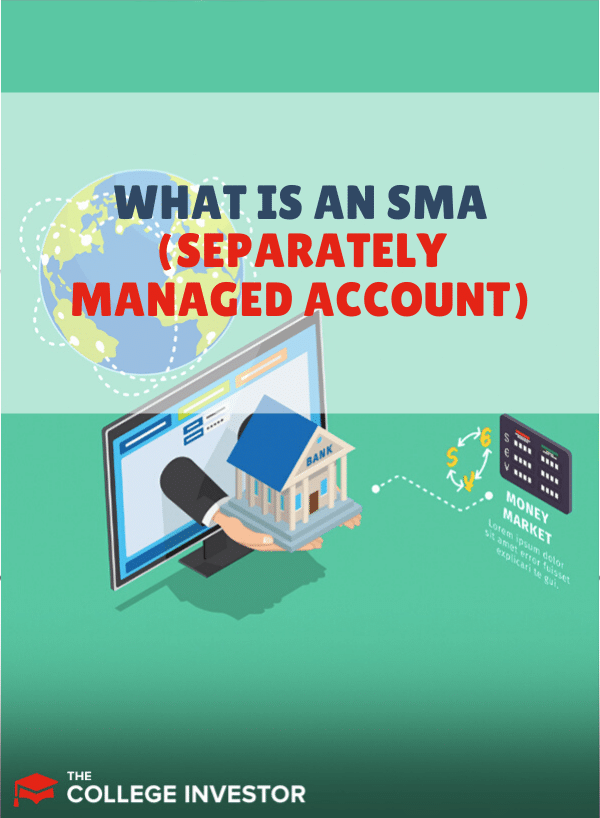
A separately managed account (SMA) is a portfolio owned by one person (or one legal entity such as a trust) that is managed by a professional investment manager. In an SMA arrangement, the investment manager has discretion over how the SMA funds are invested, and the manager may make different investment decisions for different accounts.
The primary benefit of SMAs is that investment managers can offer customization based on an investor’s goals and taxable income situations. The primary drawbacks to these accounts are the high management costs, and the possibility of underperformance.
Since SMAs are typically only available to individuals with a high net worth with at least $250,000 in investment assets, most people don’t have to decide whether to consider the accounts. However, if you’re wealthy today, or plan to become wealthy some day, these are the things you should know about SMAs.
What Value Is the Manager Trying to Bring to You?
SMAs are often offered by registered investment advisers who are often known as financial advisors or financial planners. Many of these advisors aren’t trying to impress you with fancy accounts or crazy investment strategies. These advisors may actually buy ETFs and mutual funds in your SMA.
The value they plan to bring to you is generally investment advice, and overall financial planning.
For this type of advisor, an SMA is simply one tool that will help the advisor serve you.
What Is the Manager’s Investment Strategy?
An investment manager’s investment strategy could range from fairly banal to extremely esoteric.
One manager may typically buy hundreds of publicly traded stocks to roughly match a major stock market index. He may regularly rebalance the portfolio to take advantage of tax-loss harvesting potential or to grab a slightly larger share of an undervalued asset. But, at the end of the day, your expected returns are about that of the broader market.
Another manager may recommend buying derivative swaps for public infrastructure projects in Abu Dhabi, Los Angeles, Goa, and Singapore.
For the right investor, either of these investment philosophies could make sense. But you need to really understand the strategy that will be implemented before trusting someone else to manage your money.
Does the Manager’s Goals Align With Your Goals?
An SMA might seem like the perfect vehicle to align an investor’s goals with the manager’s goals, but the reality is a little more complicated. An investment manager may tend to prioritize steady income, or low volatility, or outperformance, or alternative asset class investment in all accounts under their care.
Each SMA will be managed slightly differently, but the manager will typically shoot for one overarching goal for all accounts under their care. This type of specialization can be a real advantage, but it requires careful diligence when finding investment managers.
How Has the Manager Performed?
Past performance does not guarantee future results, but a stand-up investment manager will show some historic performance numbers. Ideally, they should show how portfolios under their care performed during market downturns, market upswings, and during relatively banal periods.
What Are the Fees (And Are Those All of the Fees)?
Investment managers could charge management fees ranging from 1% to 3% of assets under management.
However, the management fees may not be the only fees you’ll pay. If an investment manager is working under a typical hedge fund arrangement, you may pay a performance bonus. For example, if the manager produces returns in excess of 10%, you may pay 20% of the outperformance amount. These performance bonuses can really eat into returns in a great year.
Does the Manager Have a Good Operational Process?
Two of the purported benefits of SMAs are tax advantages and outperformance potential. However, an investment manager needs smooth operations to make those a reality. Ask managers about who executes trades, what technology the company uses, and how you’ll be updated about the status of your account.
At the end of the day, SMAs are not for most people. But as you become wealthier, you’re likely to come across them. It’s important to understand what they are, so you can decide whether to pursue one, or whether it makes more sense to manage money on your own.

Robert Farrington is America’s Millennial Money Expert® and America’s Student Loan Debt Expert™, and the founder of The College Investor, a personal finance site dedicated to helping millennials escape student loan debt to start investing and building wealth for the future. You can learn more about him on the About Page or on his personal site RobertFarrington.com.
He regularly writes about investing, student loan debt, and general personal finance topics geared toward anyone wanting to earn more, get out of debt, and start building wealth for the future.
He has been quoted in major publications, including the New York Times, Wall Street Journal, Washington Post, ABC, NBC, Today, and more. He is also a regular contributor to Forbes.
Editor: Clint Proctor Reviewed by: Chris Muller
